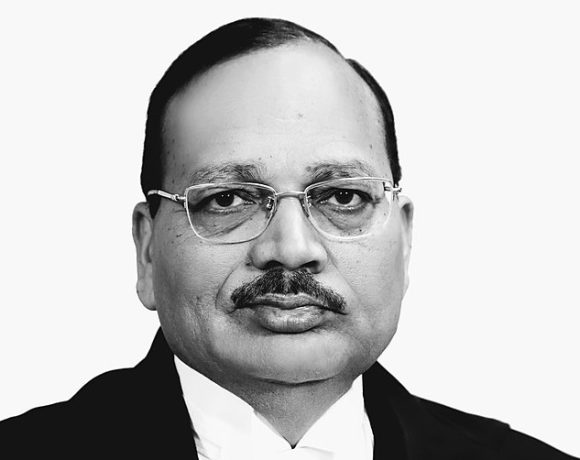
Waqf Boards Are Panicking – But the Court Can’t Be a Tool for Religious Blackmail
For decades, the Waqf Act allowed a religious board to exercise unchecked powers over land in India with minimal transparency and virtually no accountability. Properties could be declared waqf simply based on “user,” enabling the takeover of even public and private lands without clear title or documentation. Thousands of acres of government land were quietly slipped into the hands of Waqf Boards, often without notice to stakeholders, let alone legal adjudication. This wasn’t just a loophole—it was a parallel system that routinely overstepped constitutional boundaries under the guise of religious autonomy.
Enter the Waqf (Amendment) Act, 2025—a much-needed intervention that doesn’t diminish religious rights but reins in the rampant misuse of power under the existing law. The amendment seeks to bring order, accountability, and transparency into the management of waqf properties. By removing the problematic provision of “waqf by user,” requiring formal verification of property claims, introducing non-Muslim and female representation in Waqf Boards, and aligning waqf disputes with the Limitation Act, this reform is not an assault on faith but a reaffirmation of legality and due process.
Importantly, this wasn’t a hasty move. The government appointed a 31-member Joint Parliamentary Committee (JPC) to examine the bill. This committee didn’t operate in isolation—it conducted 36 sittings, received 9.7 million public submissions, and made field visits across ten cities. Its recommendations weren’t shelved or cherry-picked—they were fully accepted. All 25 suggested amendments were incorporated into the final version of the Act. The bill then passed both Houses of Parliament through a constitutionally valid process and became law. In every possible measure, this reform stands as a model of participatory legislation and democratic procedure.
Yet, as expected in a plural democracy, the bill has been challenged in the Supreme Court. India’s Constitution allows such judicial review—an essential guardrail of democracy. The courts are empowered to examine whether a law violates fundamental rights, contravenes the basic structure of the Constitution, or was passed without proper legislative competence. This right to challenge, however, does not automatically make a law flawed. It is simply a test—one which this amendment is well-equipped to pass.
Petitioners argue that the bill infringes on religious autonomy by introducing non-Muslim members to Waqf Boards. But the Boards are administrative, not theological, entities. Their task is to manage land and finances, not to dictate doctrine. Adding diversity to oversight mechanisms only enhances public trust. Another claim is that requiring official verification of waqf properties will lead to the loss of undocumented sites. In reality, this provision protects both waqf integrity and public interest by ensuring that claims are based on lawful documentation, not arbitrary assertion. Petitioners also lament the end of “waqf by user,” but the amendment clearly applies this only prospectively—existing waqf properties remain untouched unless formally disputed.
The loudest protest, however, seems to be the most revealing. Waqf Boards are alarmed by the audit provisions, loss of unchecked power, and the requirement to operate under the same legal obligations as any other trust or entity. For too long, these Boards operated with minimal scrutiny, claiming authority that no other religious or charitable institution in India enjoys. Their panic is not rooted in principle, but in privilege.
This raises a more foundational question—why does one religious community get a national-level statutory framework for property management, when others do not? Hindus, Christians, Sikhs, and Jains manage their religious properties under either state laws or general trust acts. Temples in many states are administered by the government. Churches and gurdwaras function under societies or private trusts. There is no centralized Hindu Endowment Act or Christian Property Board. The very existence of the Waqf Board system as a government-backed, community-specific legal framework is an anomaly—and arguably, a violation of the principle of equality before law.
This is not about diminishing religious rights—it is about ensuring that no religious group is allowed to operate in a parallel legal ecosystem that is immune to constitutional norms. The Constitution guarantees the right to religion, not the right to monopolize land, evade audits, or silence scrutiny. The very same communities who cry foul over inclusion and transparency in the Waqf system would never tolerate similar privileges being extended to other religions. That selective outrage is not secularism—it’s entitlement masquerading as victimhood.
India has long lived under the burden of identity-based politics. The time has come to move towards equality-based governance. Uniformity under the law is not communalism—it is the essence of the Constitution. The Waqf Amendment Bill, far from being a communal witch-hunt, is a legislative milestone toward that ideal. It brings one powerful institution back into the ambit of scrutiny, regulation, and lawful functioning. It dares to say that religious faith cannot be a substitute for legal compliance.
In conclusion, this is more than just a legal battle over land and audits. It is a test of whether India is willing to confront the inconsistencies that weaken its constitutional spine. The challenge in the Supreme Court is not just about the Waqf Act—it is about the future of secular governance in this country. If the Waqf Amendment Bill can become the first step toward applying one law to all religious endowments, then it is not only justified—it is indispensable.
Let the Waqf Boards panic. Let the petitions pile up. But let the judiciary remember: the courtroom is not a sanctuary for religious blackmail. It is a temple of law. And in that temple, equality must reign above all else.


















